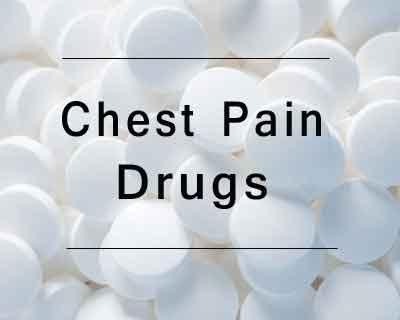- Home
- Editorial
- News
- Practice Guidelines
- Anesthesiology Guidelines
- Cancer Guidelines
- Cardiac Sciences Guidelines
- Critical Care Guidelines
- Dentistry Guidelines
- Dermatology Guidelines
- Diabetes and Endo Guidelines
- Diagnostics Guidelines
- ENT Guidelines
- Featured Practice Guidelines
- Gastroenterology Guidelines
- Geriatrics Guidelines
- Medicine Guidelines
- Nephrology Guidelines
- Neurosciences Guidelines
- Obs and Gynae Guidelines
- Ophthalmology Guidelines
- Orthopaedics Guidelines
- Paediatrics Guidelines
- Psychiatry Guidelines
- Pulmonology Guidelines
- Radiology Guidelines
- Surgery Guidelines
- Urology Guidelines
Chest Pain Drug Could Fight Fetal Fungal Infection

A drug, more commonly used in the treatment of angina type of chest pain caused by reduced blood flow to heart could be the focus of a new strategy in fighting the fatal fungal infection cryptococcosis, say researchers.
The compound fendiline hydrochloride could be used to stimulate a patient's own white blood cells to fight the disease more effectively, instead of trying to use drugs that directly kill the fungus itself, the researchers found.
"Fungi are intrinsically more difficult to target than bacteria, because they are much more closely related, evolutionarily, to humans. Finding an essential pathway in a fungus that you could inhibit, which doesn't exist in humans, is very difficult," explained professor Robin May from University of Birmingham.
"Therefore the approach of stimulating your own immune system to kill the fungus, instead of killing it directly through treatment, is potentially more powerful," he noted.
The study, published in the International Journal of Antimicrobial Agents, propose a role for calcium-channel blockers such as fendiline hydrochloride as potential inhibitors to the survival of Cryptococcus neoformans, the pathogen which causes cryptococcosis, and represent a promising strategy for future anticryptococcal drug design and therapy.
Cryptococcosis neoformans poses a major threat to immunocompromised patients and is a leading killer of HIV patients worldwide.
HIV/AIDS patients are particularly prone to cryptococcal infections, with an estimated overwhelming disease burden of about one million cases of cryptococcal meningitis per year.
The infection process begins with inhalation of infectious agents (spores or dessicated yeasts) resulting in a primary pulmonary infection, which can further disseminate to the central nervous system causing meningitis.
Cryptococci are particularly difficult to treat with antifungal agents due to their ability to manipulate and exist within the host's immune response.
"Considering the poor status of current anticryptococcal drugs, new treatment options for cryptococcosis are much needed," Rebecca Hall, also from the University of Birmingham, added.

Disclaimer: This site is primarily intended for healthcare professionals. Any content/information on this website does not replace the advice of medical and/or health professionals and should not be construed as medical/diagnostic advice/endorsement or prescription. Use of this site is subject to our terms of use, privacy policy, advertisement policy. © 2020 Minerva Medical Treatment Pvt Ltd